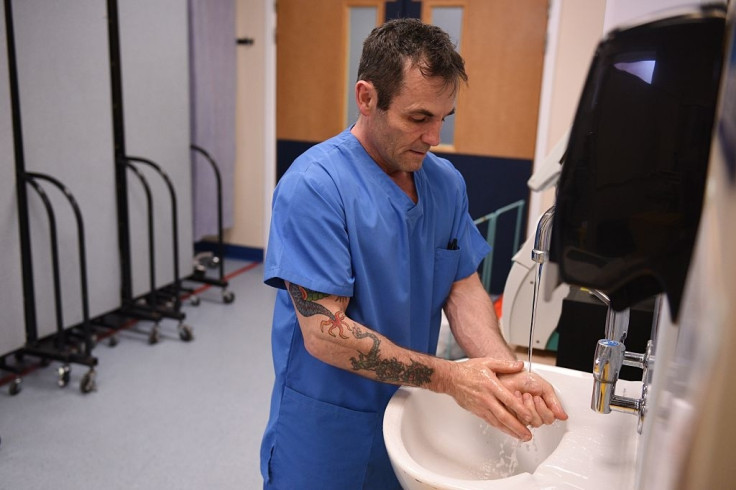AI and depth-sensing cameras are here to wipe infection from hospital wards
Artificial intelligence and smart algorithm cleans up hospital hand-washing.

An array of depth-sensing cameras and artificial intelligence can be used to monitor hospitals and ensure medical staff are washing their hands far more effectively than a human observer.
This is the outcome of research conducted by the Swiss Federal Institute of Technology in Lausanne. Their goal is to lower the shocking statistic that one in 25 patients admitted to a hospital in Europe will suffer from an infection acquired during their visit.
Placed along hallways throughout a hospital, the cameras can spot when an antibacterial gel dispenser is being used correctly, and when staff are failing to wash their hands - which could lead to the transmission of infection and disease between patients.
The trial, conducted across two wards, found that of the 170 people who entered a patient's room, only 30 used the gel dispenser correctly. Then, 80% of the images captured by the cameras were fed into an algorithm, training it about hand hygiene and the behaviour of staff.
The algorithm was then tested with the remaining 20% to see if it could reliably state when the gels were and weren't used correctly. The algorithm was 75% accurate in telling whether people had used the dispensers or not - an improvement on the 63% scored by a human given the same task.
Additionally, while a human can log gel use on a clipboard, they cannot track the movements of every person throughout the ward or even the entire hospital - the cameras and algorithm can.
Furthermore, the algorithm is able to construct usage behavioural patterns. For example, researchers found people in larger groups were less likely to wash their hands correctly.
In turn, similar AI-driven monitoring systems could be used to keep an eye on patients when staff are busy elsewhere. Alexandre Alahi, lead author of the research, told New Scientist: "We can't afford to have a doctor in a room 24/7, but we could afford an AI doctor in every room, and every corridor too, leaving humans to do the most important jobs."
© Copyright IBTimes 2024. All rights reserved.






